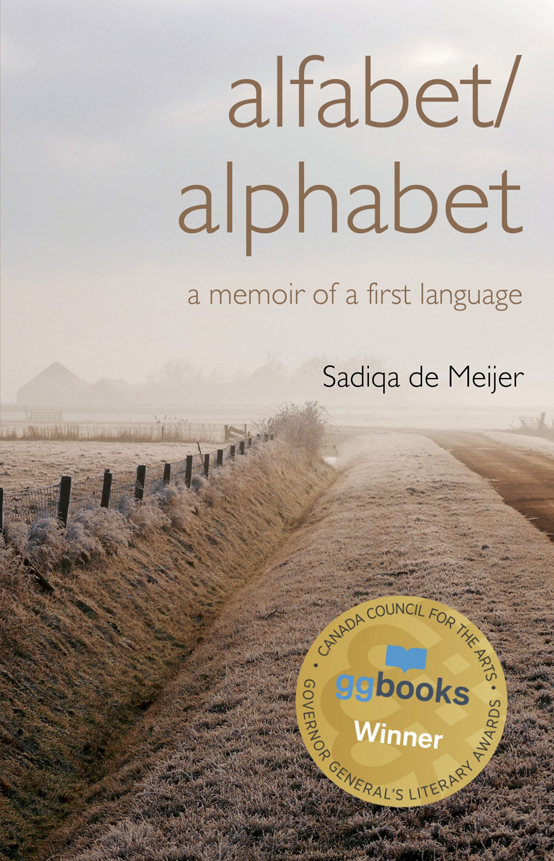USEREVIEW 076 (Capsule): alfabet / alphabet
Sadiqa de Meijer
alfabet / alphabet (Palimpsest Press, 2020)
ISBN 978-1-92679-460-6 | 100 pp | $15.95 CAD / $14.95 USD | BUY Here
#CAROUSELreviews
#USEREVIEWEDNESDAY
Surely there is no one to better explore the limits, beauty and vagaries of language than a poet, someone who has dedicated their life to engaging in a deep relationship with words. Sadiqa de Meijer, who has previously published two poetry collections, turns her attention to memoir in Alfabet / Alphabet. Subtitled ‘a memoir of a first language,’ it explores the Netherlands-born writer’s relationship to Dutch and English.
The slim volume spans questions of identity, race, translation, belonging and home. Probing the gaps between her mother tongue and her learned language, de Meijer deftly pulls at the construction of linguistic communication, pondering how language shapes thought, and thought language. With a poet’s eye for imagery and symbolism, small nuances are enhanced to gesture toward larger ideas. Sometimes these examples reveal family history and personal narrative. De Meijer, who identifies as coming from a “Dutch-Kenyan-Pakistani-Afghani family” grapples with early experiences of racism, and the displacement and lost languages in her own family background. She details the process of learning and unlearning after her family immigrated to Canada during her childhood, what was gained and lost through a new language.
At other times her exploration turns more academic. Tracing her love of lyricism to early reading of Dutch poems, she performs beautiful analyses of these works in English and Dutch, revealing what is lost in translation. De Meijer is a master of communicating sound on the written page, and her phonetics, repetition and instruction inspire the reader to bend forward, whispering at the book in their hands. In de Meijer’s words, language comes alive.
Recommended excerpt:
Chapter “oul/old” (beginning at page 85). I’m recommending this excerpt because it shows the book’s incisive way of exploring the gaps between languages and a main theme of the author’s memoir: the “chronic abstraction” she felt as someone who had to learn to live in a new language at a young age.



